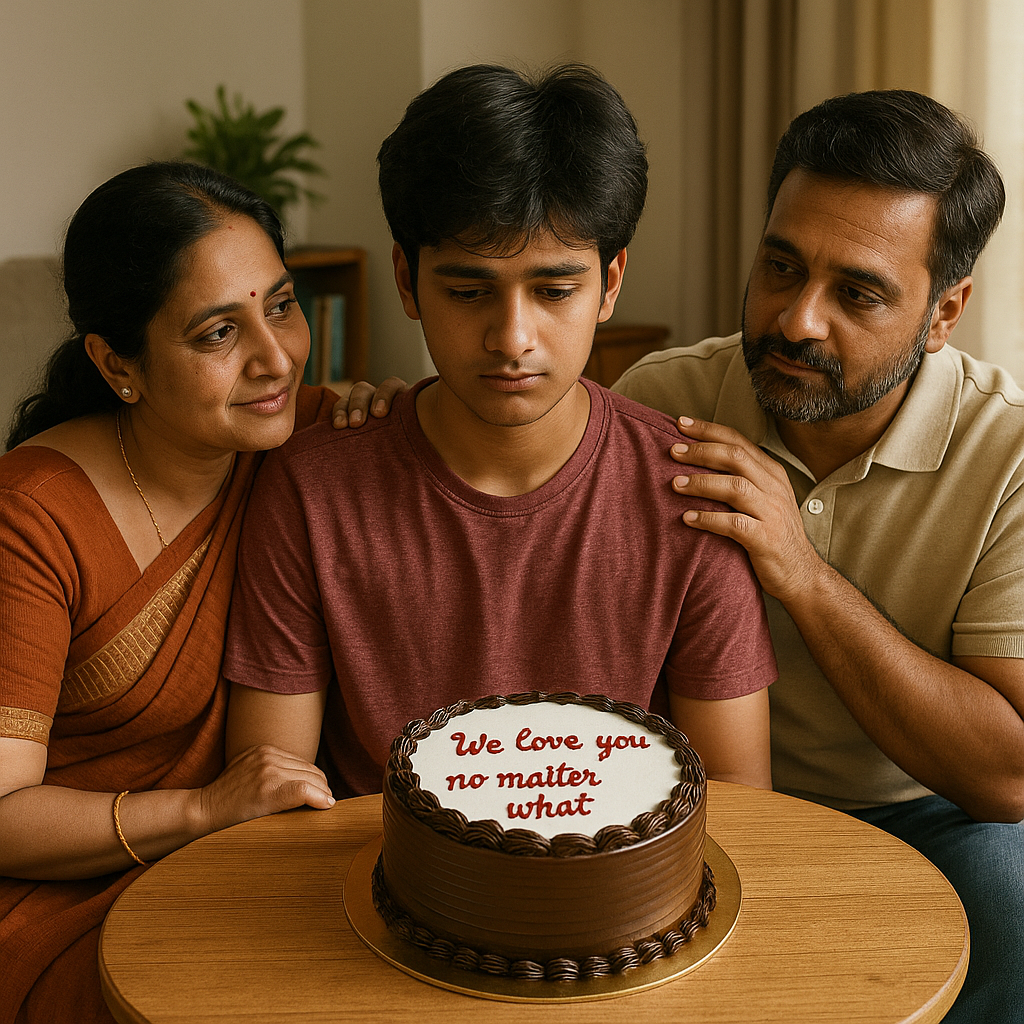In an incident that has garnered national attention and sparked widespread conversation, a set of parents in [City], India, chose an unconventional response to their son’s complete failure in the Class 10 board examinations. Rather than reacting with anger or disappointment, they celebrated the moment with a cake—emblazoned with the words “We love you no matter what”—and offered words of encouragement and hope.
The student had failed all six subjects in the exam, a result that often provokes criticism, shame, or in extreme cases, harsh punishment in many households. However, this family’s compassionate response has gone viral on social media and is being praised as a model for mental-health-conscious parenting in an increasingly competitive academic environment.
Mental Health Advocacy Meets Real-Life Parenting
India’s education system, despite recent reforms, remains deeply rooted in high-stakes examinations. According to NCRB data, over 13,000 student suicides were recorded in India in 2022 alone, many linked to academic failure or fear of parental disapproval.
Mental health professionals, educators, and child psychologists have lauded the parents’ gesture as an example of emotional maturity and supportive parenting. By choosing love over pressure, they helped buffer the student from the psychological harm often associated with academic setbacks.
“This is how resilience is built. Children need to know that failure is temporary, but support should be permanent,” said Dr. Ritu Sharma, a Delhi-based child psychologist.
NEP 2020 and the Push for Holistic Education
The National Education Policy (NEP) 2020 advocates for a shift away from rote learning and exam-centric education, emphasizing holistic development, critical thinking, and emotional intelligence. This incident aligns with the NEP’s call for reformed assessment methods and the creation of stress-free learning environments.
By publicly demonstrating that marks are not the sole indicator of a child’s potential, these parents have indirectly reinforced key goals of NEP 2020 and challenged rigid societal norms that equate academic performance with personal worth.
The Need for Broader Societal Change
While this individual act stands out, it also exposes a larger systemic issue—the need for greater awareness among parents, educators, and institutions about mental well-being, especially during board exams.
Experts recommend:
- Integrating mental health education and counseling into school systems
- Training parents on constructive communication and emotional support
- Promoting acceptance of diverse career paths beyond academics
Educational NGOs and school boards have begun promoting campaigns like “Marks Don’t Define You,” but stories like this one show that real change begins at home.


